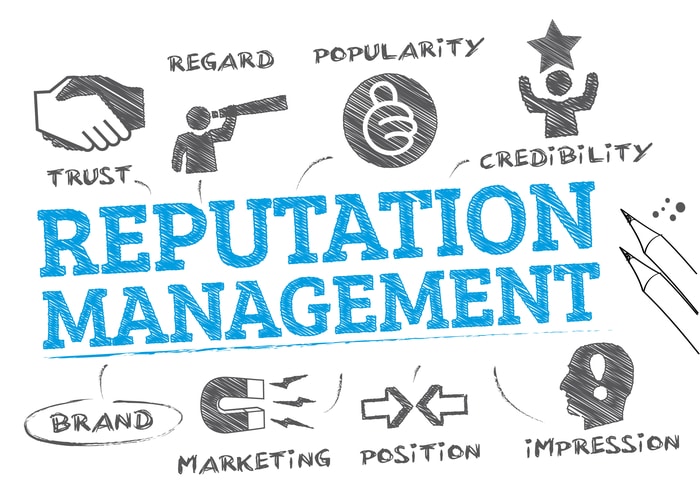From Situation to Chance: Leveraging Credibility Management in Times of Difficulty
In today's interconnected and fast-paced world, services and people face the constant danger of dilemmas and difficulties that can possibly harm their hard-earned reputation. In this discussion, we will explore the art of leveraging reputation management during times of crisis, providing insights and techniques that can transform a difficult circumstance into a stepping stone for success.
Understanding Reputation Management
Understanding reputation monitoring is crucial for people and services seeking to maintain a positive public photo and alleviate prospective damage in times of hardship. Credibility management incorporates the approaches and techniques used to form, preserve, and protect an individual's or company's credibility (Reputation Management). It involves proactively checking what is being said concerning the specific or company, both online and offline, and responding suitably to any type of destructive or unfavorable information
In today's electronic age, where info spreads out quickly and can have a long lasting influence, track record management has actually become a lot more essential. Social media site platforms, online evaluation websites, and news electrical outlets can rapidly intensify any type of negative promotion or objection, possibly triggering substantial damage to an individual's or organization's track record. By understanding track record management, individuals and businesses can efficiently browse these challenges and proactively attend to any kind of issues that might emerge.
Key elements of online reputation management consist of monitoring online reviews and discusses, involving with stakeholders or customers, dealing with unfavorable responses or objection in a timely and professional way, and proactively taking care of online profiles and material. Furthermore, organizations and people should strive to develop a strong credibility by providing on pledges, giving excellent client service, and engaging in ethical practices.
Identifying Adversities and Crisis Situations

To recognize these misfortunes and crisis scenarios, organizations require to establish a durable tracking and early caution system. This involves proactively keeping track of traditional media, social media sites platforms, on-line forums, and various other relevant sources for any kind of unfavorable discussions or potential dangers related to the company. Reputation Management. By staying attentive and proactive, organizations can swiftly detect and react to arising concerns, preventing them from spiraling out of hand
Additionally, organizations must also conduct routine threat assessments to determine prospective susceptabilities and weak points in their operations. When they do occur, this enables them to establish backup strategies and protocols to deal with situations effectively. By being prepared and proactive in determining misfortunes and situation scenarios, companies can better safeguard their online reputation, keep stakeholder trust, and ultimately turn hardship into chance.
Building a Dilemma Reaction Method
Creating a reliable situation feedback approach is crucial for organizations to efficiently browse via difficulty and shield their online reputation. In times of situation, companies should be prepared to respond rapidly and efficiently to reduce the influence on their stakeholders and maintain public trust. Constructing a situation feedback approach entails numerous crucial actions.
To start with, companies require to establish a dilemma management team included key people from different departments. This group must be in charge of carrying out the crisis and creating action plan. They need to have a clear understanding of the company's values, purposes, and essential stakeholders.
Second of all, organizations must perform a thorough danger assessment to recognize potential situations that could take place and evaluate their possible effect. This entails examining external and interior factors that might lead to a dilemma, such as functional interruptions, economic issues, or reputational dangers.
Next, organizations need to develop an interaction strategy that describes just how they our website will certainly interact with their stakeholders throughout a situation. This plan must include regular and clear messaging, as well as platforms and channels to get to various audiences.
Furthermore, companies should establish procedures for surveillance and assessing the dilemma feedback strategy. This includes consistently evaluating and upgrading the strategy to ensure its efficiency and making essential changes based on lessons discovered from previous dilemmas.

Using Social Media Site in Credibility Monitoring
Social media has come to be an indispensable device for organizations in managing their track record throughout times of adversity. With the increase of social networking systems such as Facebook, Twitter, and Instagram, companies currently have the opportunity to directly involve with their stakeholders and resolve any issues or problems that might emerge.
During times of crisis, social networks permits companies to quickly disseminate info, supply updates, and connect their side of the tale. By actively participating in social media sites discussions, companies can keep track of public belief, address false information, and show transparency and responsibility.
Among the crucial advantages of making use of social media sites in reputation management is the ability to reach a large target market in real-time - Reputation Management. Via social media sites try this website systems, companies can involve with stakeholders from around the world, regardless of geographical boundaries. This enables them to not just handle their online reputation in your area however likewise on a global scale
An additional advantage of utilizing social networks is the interactive nature of these platforms. Organizations can actively pay attention to their target market, reply to their problems, and show a desire to solve problems. This level of engagement aids construct depend on and integrity, which are vital for credibility management.
Nonetheless, it is necessary for organizations to approach social media sites with caution. Missteps or unacceptable actions can rapidly rise a dilemma and further damages the organization's reputation. It is essential for companies to have a well-defined social media method in place, with clear standards on exactly how to address dilemma situations.
Transforming Dilemma Into Opportunity: Instance Studies
Numerous organizations have actually successfully transformed crises right into chances by efficiently managing their track record and carrying out strategic activities. These study highlight the value of proactive reputation monitoring during times of misfortune.
One such case research study is the Tylenol dilemma in 1982. By you could look here prioritizing consumer safety and openly dealing with the crisis, Johnson & Johnson not only restored consumer trust but additionally established brand-new market requirements for product safety.
Another notable example is the Domino's Pizza situation in 2009. 2 workers shot themselves damaging food in a Domino's kitchen and posted the video clip online. In action, Domino's promptly said sorry and introduced an extensive online campaign to resolve the situation. The business's CEO directly attended to the problem in a YouTube video, showing transparency and commitment to consumer satisfaction. This aggressive strategy aided Domino's gain back client trust and also enhance sales following the case.
These instance research studies demonstrate the relevance of quick activity, transparency, and reliable communication subsequently dilemmas right into chances. By efficiently handling their credibility and implementing calculated activities, companies can not only minimize the negative influences of a crisis however additionally emerge stronger and more durable.
Conclusion
Leveraging social media as a device in track record administration can further enhance companies' capability to deal with dilemmas and connect with stakeholders. With positive and tactical track record administration, crises can be transformed into opportunities for development and enhancement.
By being prepared and proactive in determining misfortunes and crisis scenarios, organizations can much better secure their credibility, keep stakeholder count on, and ultimately transform hardship right into chance.
Developing an efficient crisis action strategy is critical for organizations to efficiently navigate via hardship and shield their credibility. Bad moves or unsuitable feedbacks can rapidly rise a crisis and additional damages the organization's track record. Leveraging social media as a device in credibility monitoring can further improve companies' ability to deal with situations and communicate with stakeholders. With tactical and aggressive reputation management, dilemmas can be transformed right into opportunities for growth and enhancement.